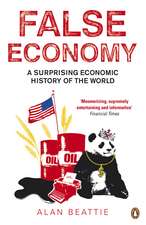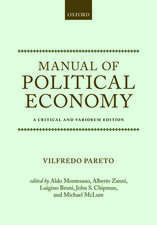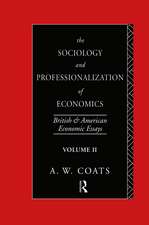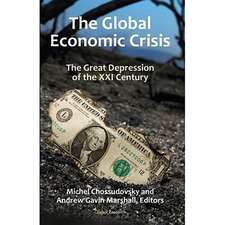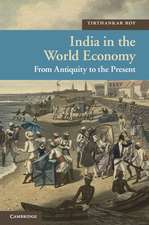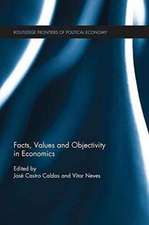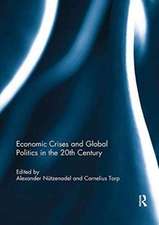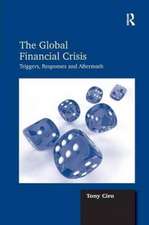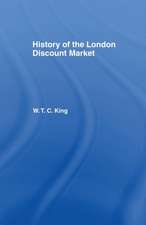Adam Smith's Economics: Its Place in the Development of Economic Thought: Routledge Library Editions: Adam Smith
Autor Maurice Brownen Limba Engleză Paperback – 10 apr 2012
| Toate formatele și edițiile | Preț | Express |
|---|---|---|
| Paperback (1) | 399.55 lei 6-8 săpt. | |
| Taylor & Francis – 10 apr 2012 | 399.55 lei 6-8 săpt. | |
| Hardback (1) | 1057.75 lei 6-8 săpt. | |
| Taylor & Francis – 14 dec 2009 | 1057.75 lei 6-8 săpt. |
Preț: 399.55 lei
Nou
Puncte Express: 599
Preț estimativ în valută:
76.45€ • 80.04$ • 63.26£
76.45€ • 80.04$ • 63.26£
Carte tipărită la comandă
Livrare economică 07-21 aprilie
Preluare comenzi: 021 569.72.76
Specificații
ISBN-13: 9780415521437
ISBN-10: 0415521432
Pagini: 208
Dimensiuni: 138 x 216 x 11 mm
Greutate: 0.06 kg
Ediția:1
Editura: Taylor & Francis
Colecția Routledge
Seria Routledge Library Editions: Adam Smith
Locul publicării:Oxford, United Kingdom
ISBN-10: 0415521432
Pagini: 208
Dimensiuni: 138 x 216 x 11 mm
Greutate: 0.06 kg
Ediția:1
Editura: Taylor & Francis
Colecția Routledge
Seria Routledge Library Editions: Adam Smith
Locul publicării:Oxford, United Kingdom
Cuprins
1. Introduction 2. Methodological Approach 3. Smith’s Epistemology: Meaning, Context and the Nature of Science 4. Metascientific Perspectives: The Individual and Society 5. Specialisation and Social Change: The Division of Labour 6. Riot, Debauchery and the Science of a Legislator 7. Purposive Action and Unintended Consequences 8. Economic Consequences and Historical Dynamics
Descriere
The conventional received opinion of Adam Smith as an isolated figure, the founder of ‘modern’ economics, is thoroughly mistaken and misleading. This is the central premise of this book, first published in 1988, in which the author argues that by placing Smith’s work in its historical context, we discover profound continuities between Smith’s work and that of his predecessors, and his contemporaries. The effect is to re-orientate our perception of Smith and his achievement. No longer the single-handed champion of free markets and competition whose work revolutionised and completely redirected economics. He appears instead as a brilliant contributor to a deep-rooted contemporary debate, someone who can be placed in a line of thinkers that stretches between Machiavelli and Kant.






